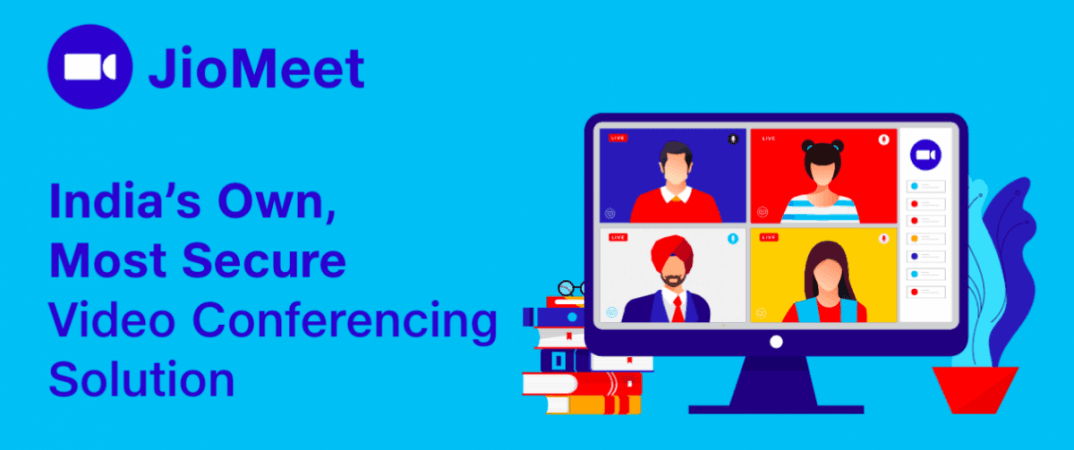
The Indian government recently banned 59 Chinese apps citing privacy concerns, but netizens asked for a wider ban on other apps, including PUBG Mobile and Zoom. The reason apps like Zoom weren't banned by the government was simply because the app isn't of China origin. However, there were concerns about Zoom app's security ever since the use of the app spiked during COVID-19 induced lockdown in India, which drew criticism. The app developers addressed those concerns to a large extent, but it has now received a "local" alternative from the house of Mukesh Ambani-run Reliance Industries.
Reliance Jio Platforms introduced JioMeet video-conferencing app in India to answer PM Modi's call for "local ke liye vocal." JioMeet became an instant hit as it attracted 100,000 downloads on Google Play Store in no time. JioMeet, like Zoom app, allows users to have one-on-one video conference and even add up to 100 participants.
JioMeet - a Zoom clone
JioMeet also assures that all meetings are encrypted and password protected, a feature that was rolled out in Zoom app after Zoombombing, a huge controversy where anyone could barge in video calls. JioMeet is a viable option for users in India, but the app's uncanny resemblance to Zoom has drawn criticism. A Twitter user shared screenshots from both apps, and it's hard to tell each other apart.
JioMeet and Zoom - a thread.
— SG (@shrinivassg) July 3, 2020
Screen 1 - Landing Page. pic.twitter.com/TC1HEJLUX1
Now, the question is if Jio took this decision intentionally as a way to offer a familiar user experience they've grown to love in Zoom. But the design aspect of the app isn't what's bothering most users.
Data-sharing clause
But netizens have pointed out the data-sharing clause in JioMeet T&Cs, which has raised concerns and questions. If you're a privacy advocate, these clauses might seem worrisome. JioMeet's privacy policy clearly states that using the free app will grant Jio permission to use both personal and non-personal information with Reliance Jio. From accessing location to SD card contents, phone statistics, conferencing logs and history.

Jio also noted that it is open to sharing personal data with third parties for display advertising and promotional services and even allow external organizations in the following cases:
- meet any applicable law, regulation, legal process or enforceable governmental request
- detect, prevent or otherwise address fraud, security or technical issues
- protect against harm to the rights, property, or safety of our customers or the public, as required or permitted by law.
It's worth noting that any Jio call recordings in the app will be saved on Jio servers for 7 days. There's no clarity on where Jio servers are located, but they are expected to be in India considering the "made in India" push.

















